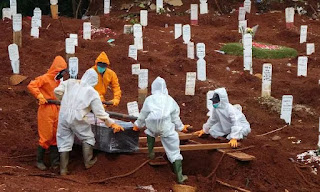Pictorial journey of a pandamic poem "Lockdown"
This blog is in response to the Sunday reading task, assigned by dr barad sir. This blog is about a poem "Lockdown" by poet laureate Simon Armitage. In this blog I share my lockdown experience and try to connect my experience with the poem.
About this poem-
The poem "Lockdown" was first published in the Guardian on 21 march 2020. This poem moves from the outbreak of bubonic plague in Eyam in the 17 th century, and this poem also refears the epic poem meghaduta by the sanskrit poet kalidasa.
The poem was also influenced by a scene in meghaduta in which an exile sends reassuring words to his wife in the Himalayas via a passing cloud.
About simon Armitage-
Simon Robert Armitage is an English poet, playwright and novelist. He was professor of poetry at the University of leeds. He was also appointed UK poet laureate on 10 may 2019.
Simon was born in Marsden, a village in west yorkshire, England. He received a BA from Portsmouth university in geography and did an MS in social work from Manchester university. From 2015 to 2019, he served as professor of poetry at the university of oxford.
Lockdown by Simon Armitage
And I couldn’t escape the waking dream
of infected fleas
in the warp and weft of soggy cloth
by the tailor’s hearth
in ye olde Eyam.
Then couldn’t un-see
the Boundary Stone,
that cock-eyed dice with its six dark holes,
thimbles brimming with vinegar wine
purging the plagued coins.
Which brought to mind the sorry story
of Emmott Syddall and Rowland Torre,
star-crossed lovers on either side
of the quarantine line
whose wordless courtship spanned the river
till she came no longer.
But slept again,
and dreamt this time
of the exiled yaksha sending word
to his lost wife on a passing cloud,
a cloud that followed an earthly map
of camel trails and cattle tracks,
streams like necklaces,
fan-tailed peacocks, painted elephants,
embroidered bedspreads
of meadows and hedges,
bamboo forests and snow-hatted peaks,
waterfalls, creeks,
the hieroglyphs of wide-winged cranes
and the glistening lotus flower after rain,
the air
hypnotically see-through, rare,
the journey a ponderous one at times, long and slow
but necessarily so.
Lessons-
What is your first reaction to this poem? Are you able to connect your lockdown experience with this poem?
Yes, I can connect my lockdown experience with this poem. When I was in my second year of college, I spent the whole year at home. That was the time when i developed my painting skills, leaned about oil painting, figure study etc things, and i started youtube channel, make painting videos and uploaded it in my channel. Many relatives appreciated my work, and also I received some commission work that time. Lockdown time benefited me alot.
On the other side, the whole world stopped, many people died because of this coronavirus, and poor people suffered a lot. In my village there were many corona cases, and many of my neighbors and relatives died. People are afraid of this virus.Most news channels continuously give coron Virus news updates all over the world. Many people died badly and there wasn't sufficient wood to burn their bodies so health officers started to put dead bodies in vasty holes outside the cities and it scared people mentally.
If you are Chinese or African, would you be happy with the concluding message the speaker is deriving or interpreting from this poem?
If I was Chinese or African, I would surely say that I am happy with the concluding message of the speaker because this poem does not point out one particular country's people or race, it reflects the situation of the whole world.
By april 2020, half of the world's population was under lockdown. There were more than 3.9 billion people who faced this situation.
Here are two literary works which spread the same message of mention in this poem.
-The ballad of east and west by rudyard kipling
-where the mind is without fear and the head is held high, Gitanjali 35 by Rabindranath tagor.
At last I could say that Simon Amritage presented the right situation of that lockdown time, by the example of the great work meghaduta and plague.
Thank you.




.jpg)


No comments:
Post a Comment